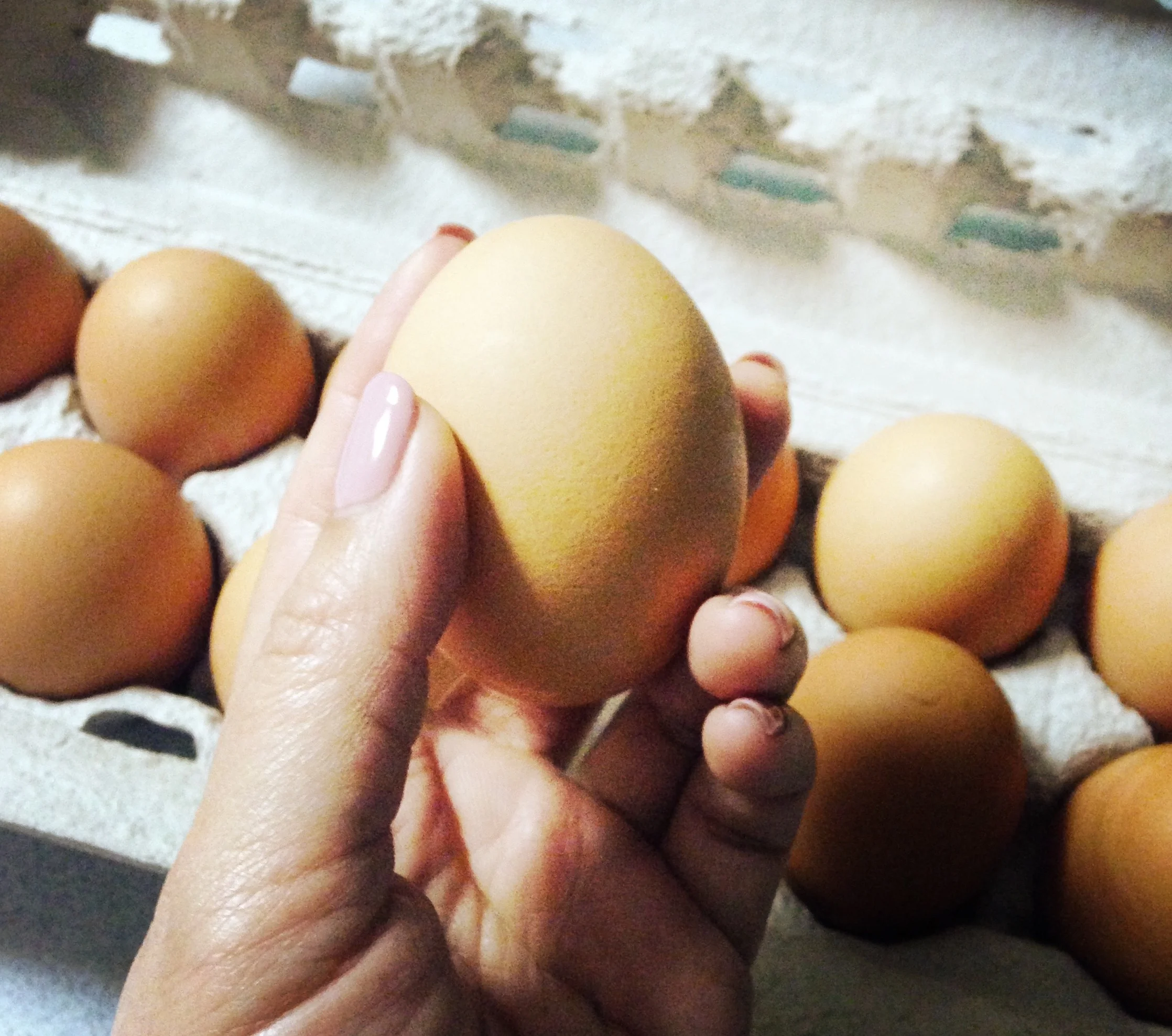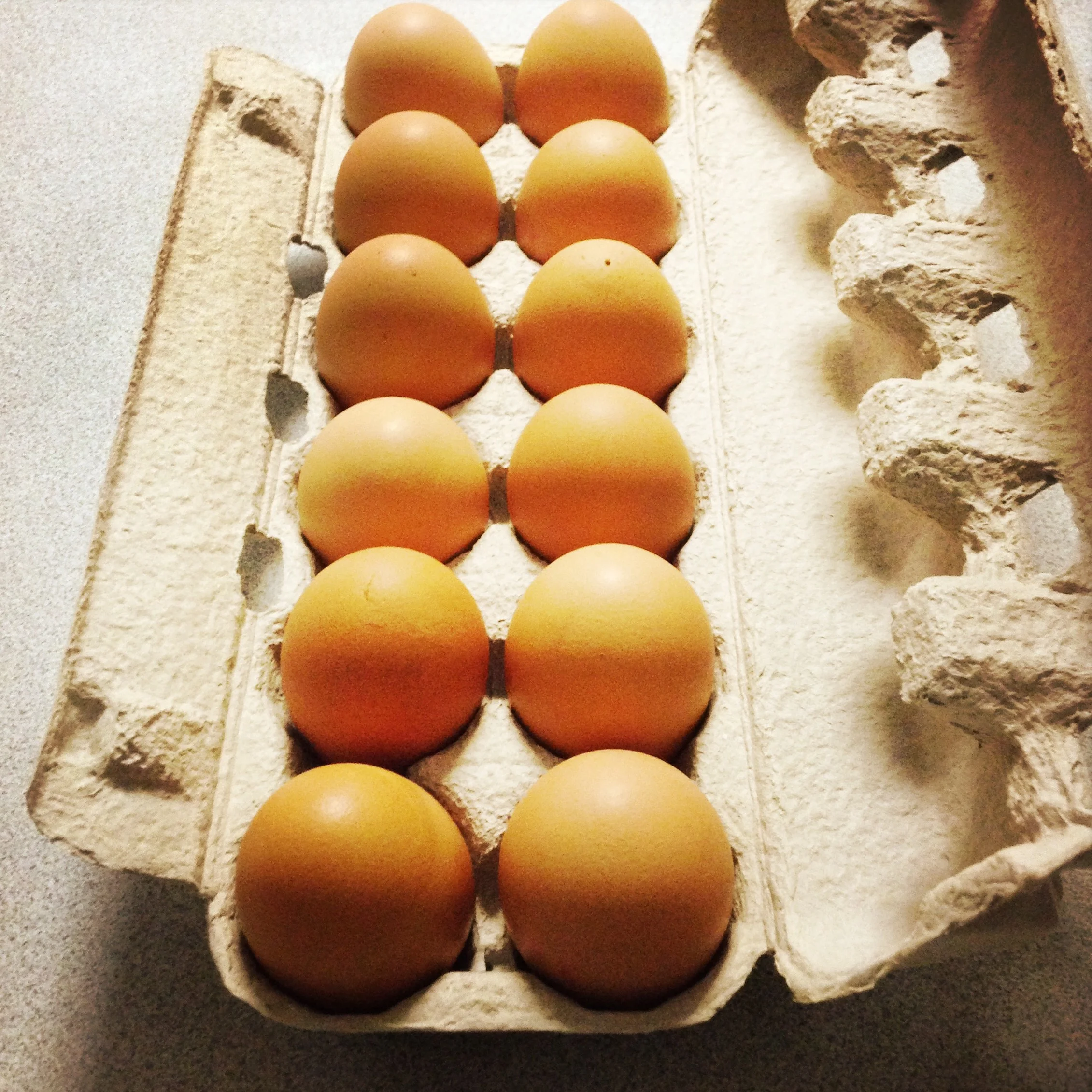Supermarkets and many food retailers are promoting ‘free range eggs’ as the baseline in responsible egg consumption. But why are these eggs deemed better? Often notions of nutrition and ethics are conflated in the term ‘best’ which can be misleading.
Here are the facts: 65% of Australians bought free-range eggs in the past 12 months [1].
I’ve looked into the two main arguments - ethics and nutrition - to investigate the evidence and decide if free-range a ‘better’ choice and for whom?
why DID the chicken cross the road? free range probably!
Australians buy free-range eggs for animal welfare reasons (68%), to support free-range egg producers (52%) and for better taste (44%) [1]. Free range eggs are defined by the conditions under which the chickens are kept and does not reference any nutritional category.
The definitions of ‘free range’ are confused - as are consumers - so the consumer group CHOICE brought out an app CLUCK AR to help consumers visualise the conditions of the chickens. There are also concerns regarding the sustainability and price impact of a wholesale move to free range by the major supermarkets [2].
Basically ‘free-range’ as a classification is currently imperfect and inconsistent with conflicting labeling, logos and marketing make it confusing for consumers and in Australia there is no consistent legal definition for egg production systems [3].
Standards for “free range” eggs are varying and confusing including [4]:
Free range: No legal definition however the benchmark for number of birds kept in a specified space is 1,500 per hectare is the recommended maximum. Qld is the only legislated state.
Organic: If ‘certified’ organic, farms meet standards of free range facilities however the use of the term ‘organic’ on packaging may merely refer to the hens’ feed and eggs are barn-laid.
RSPCA-approved: can be barn laid however not all approved farms provide outdoor access to hens.
Barn-laid: Not confined in cages and in theory have the ability to move more freely. However confinement in an indoor barn and high stocking densities restricts hen’s normal behaviours and quality of life.
The main ethical concern in all egg laying systems is this: as only female chickens lay eggs, male chickens with no commercial value are killed shortly after birth. This uncomfortable reality prompts many vegetarians and vegans to eschew eggs for other protein sources as an ethical choice [4].
virtue tastes delicious, so are free-range eggs more nutritious?
Eggs are a great source of protein, 11 vitamins and minerals, and healthy fats including omega-3. Two eggs provided less than 10% of an average adult’s daily energy requirements [5].
There are no specific recommendations on the frequency of egg intake within the Australian Dietary Guidelines [5].
The Australian Heart Foundation suggests you can eat up to 6 eggs each week. That could be 1 egg most days of the week, or a serve of eggs (2 eggs) in 2 to 3 meals a week [6].
Whilst choosing free-range benefits the welfare of the laying-hens, free-range eggs are not “healthier” than caged eggs.
Studies investigating a significant nutritional advantage of eggs produced by chickens housed on a range versus in cages could not be established [7,8].
Researchers discovered that the two types of eggs contained similar levels of cholesterol and vitamins A and E. Levels of vitamin A, needed for healthy skin and bones, and vitamin E, essential for protecting the body's cells, were the same [7,8].
The literature also found no difference in the levels of cholesterol, which can clog arteries that cause heart attacks and strokes. Although free range produced eggs were observed to have higher levels of total fat than caged eggs, they did not have higher levels of cholesterol [7,8].
Whilst yolks appear darker for free-range eggs, there is no difference in its nutritional benefit as the colour is attributed to the type of feeds provided to hens although some farmers claim colourants are added to feed [9].
eggs are good for your body, mixed results for your conscience
If you can get past the mass destruction of male chicks then eggs are a great source of nutrients, vitamins and minerals regardless of whether they are free-range or cage produced. That’s right: there is no significant nutritional health benefit from choosing free range over caged [5-8].
But with the interest of the welfare of chickens:
choose free range over cage eggs if your resources/budget permit
Investigate egg replacement/alternative products which are produced from plant-based sources [10].
That's eggs in a nutshell. To check out the chicks and the paradox of eating ethically visit: http://healthcultureandsociety2013.wikispaces.com/The+Paradox+of+Eating+Ethically+-+The+Chicken+%26+The+Egg
[1] Choice Australia. Free Range Eggs: [internet] [cited 2016 Jul 20]. Available from: https://www.choice.com.au/food-and-drink/meat-fish-and-eggs/eggs/articles/free-range-eggs
[2] Fairfax Media. Sydney Morning Herald. Major supermarkets struggle to pass CSIRO/RSPCA code on free-range eggs. [internet] [cited 2016 Jul 20]. Available from:http://www.smh.com.au/business/consumer-affairs/want-to-buy-freerange-eggs-bad-luck-you-cant-20160601-gp93oc.html
[3] Animals Australia. Making Sense of Egg Labels [internet] [cited 2016 Jul 20]. Available from: http://www.makeitpossible.com/guides/egg-labels.php
[4] RSPCA Australia. What happens with male chicks in the egg production industry 2016. [internet] [cited 2016 Jul 20]. Available from: http://kb.rspca.org.au/What-happens-with-male-chicks-in-the-egg-production-industry_100.html
[5] National Health and Medical Research Council. Australian Dietary Guidelines 2013. [internet] [cited 2016 Jul 20]. Available from: https://www.eatforhealth.gov.au
[6] National Heart Foundation of Australia. Position statement. Dietary fats and dietary sterols for cardiovascular health 2009. [internet] [cited 2016 Jul 20]. Available from: http://www.heartfoundation.org.au
[7] Anderson, K.E. 2011. Comparison of fatty acid, cholesterol, and vitamin A and E composition in eggs from hens housed in conventional cage and range production facilities. Poultry Science, vol. 90, no. 7, pp. 1600-1608
[8] Karsten, HD, Patterson, PH, Stout, R. & Crews, G. 2010. Vitamins A, E and fatty acid composition of the eggs of caged hens and pastured hens. Renewable Agriculture and Food Systems, vol. 25, no. 1, pp. 45-54.
[9] Philip Westwood. Freeranger Eggs. [internet] [cited 2016 Jul 20]. Available from: http://freerangereggs.blogspot.com.au/2012/10/colouring-additives-in-most-of-eggs-you.html
[10] Animals Australia. Egg Free Guide. [internet] [cited 2016 Jul 20]. Available from: http://www.animalsaustralia.org/features/egg-free-guide.php


